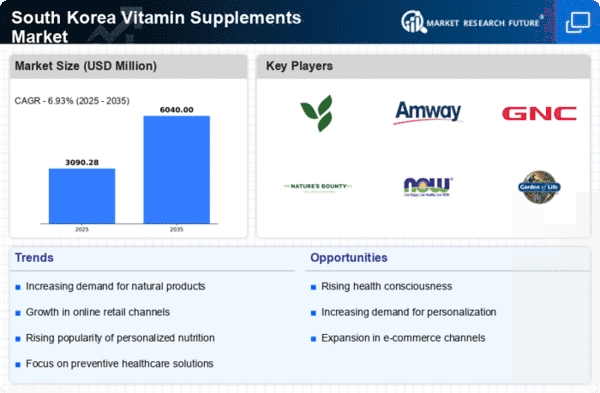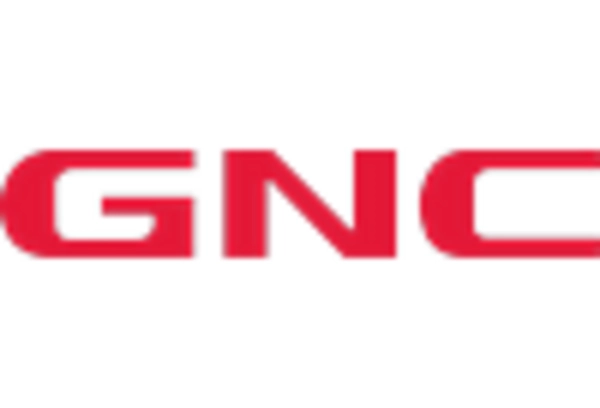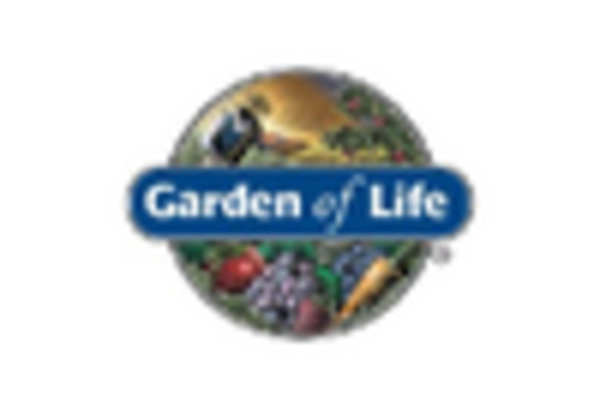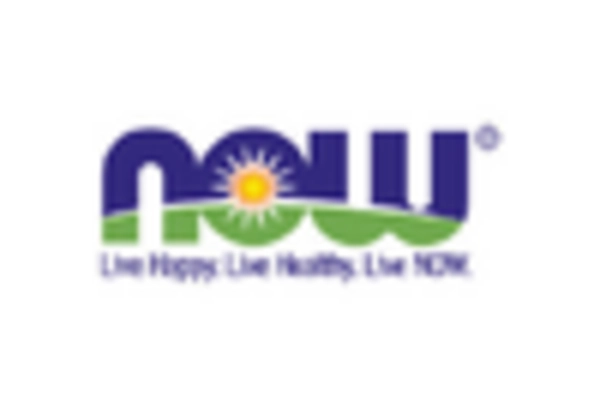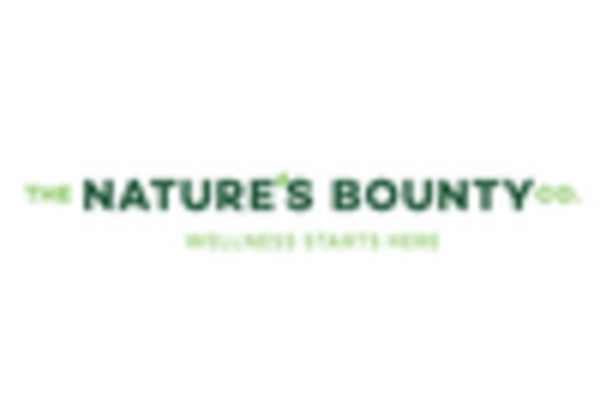Aging Population Dynamics
The demographic shift towards an aging population in South Korea is significantly influencing the vitamin supplements market. With a growing number of individuals aged 65 and older, there is an increasing demand for products that support health and vitality in later years. This demographic is particularly interested in supplements that promote bone health, cognitive function, and overall well-being. Data suggests that the elderly population is expected to reach 20% of the total population by 2030, which could lead to a substantial increase in the market size. As a result, companies are likely to focus on developing targeted formulations that cater to the unique needs of older adults, thereby driving innovation and growth within the vitamin supplements market.
Health Consciousness Surge
The increasing awareness of health and wellness among consumers in South Korea appears to be a primary driver for the vitamin supplements market. As individuals become more informed about the benefits of vitamins and minerals, they are more likely to incorporate these supplements into their daily routines. Recent surveys indicate that approximately 70% of South Koreans actively seek out dietary supplements to enhance their health. This trend is further supported by the rise in lifestyle-related diseases, prompting consumers to prioritize preventive health measures. Consequently, the vitamin supplements market is experiencing robust growth, with a projected increase of 8% annually over the next five years. This heightened health consciousness is likely to sustain demand for a diverse range of products, from multivitamins to specialized formulations targeting specific health concerns.
Regulatory Support and Quality Assurance
The regulatory environment surrounding the vitamin supplements market in South Korea is becoming supportive, which may enhance consumer confidence and market growth. The government has implemented stringent quality control measures and safety standards for dietary supplements, ensuring that products meet high safety and efficacy benchmarks. This regulatory framework appears to foster trust among consumers, encouraging them to invest in vitamin supplements. Furthermore, the South Korean government is actively promoting the health benefits of dietary supplements through various initiatives, which could lead to increased consumption. As a result, the vitamin supplements market is likely to benefit from this regulatory support, potentially leading to a more robust and competitive landscape.
Rising Interest in Preventive Healthcare
The growing trend towards preventive healthcare is a crucial driver of the vitamin supplements market. South Koreans are increasingly recognizing the importance of maintaining health rather than merely treating illnesses. This proactive approach is leading to a heightened interest in dietary supplements that can help prevent deficiencies and support overall health. Market data indicates that the preventive healthcare segment is expected to grow by approximately 10% annually, reflecting a shift in consumer attitudes. As more individuals seek to enhance their immune systems and overall wellness, the demand for vitamin supplements is likely to rise, prompting manufacturers to expand their product lines to meet this evolving consumer preference.
Influence of Social Media and Digital Marketing
The role of social media and digital marketing in shaping consumer behavior is becoming increasingly evident in the vitamin supplements market. Platforms such as Instagram and YouTube are inundated with influencers promoting various health products, which appears to significantly impact purchasing decisions. Recent studies indicate that nearly 60% of consumers in South Korea are influenced by online reviews and social media endorsements when selecting supplements. This trend is likely to encourage brands to invest more in digital marketing strategies to reach their target audience effectively. As a result, the vitamin supplements market may witness a shift towards more innovative and engaging marketing campaigns, ultimately driving sales and brand loyalty.


